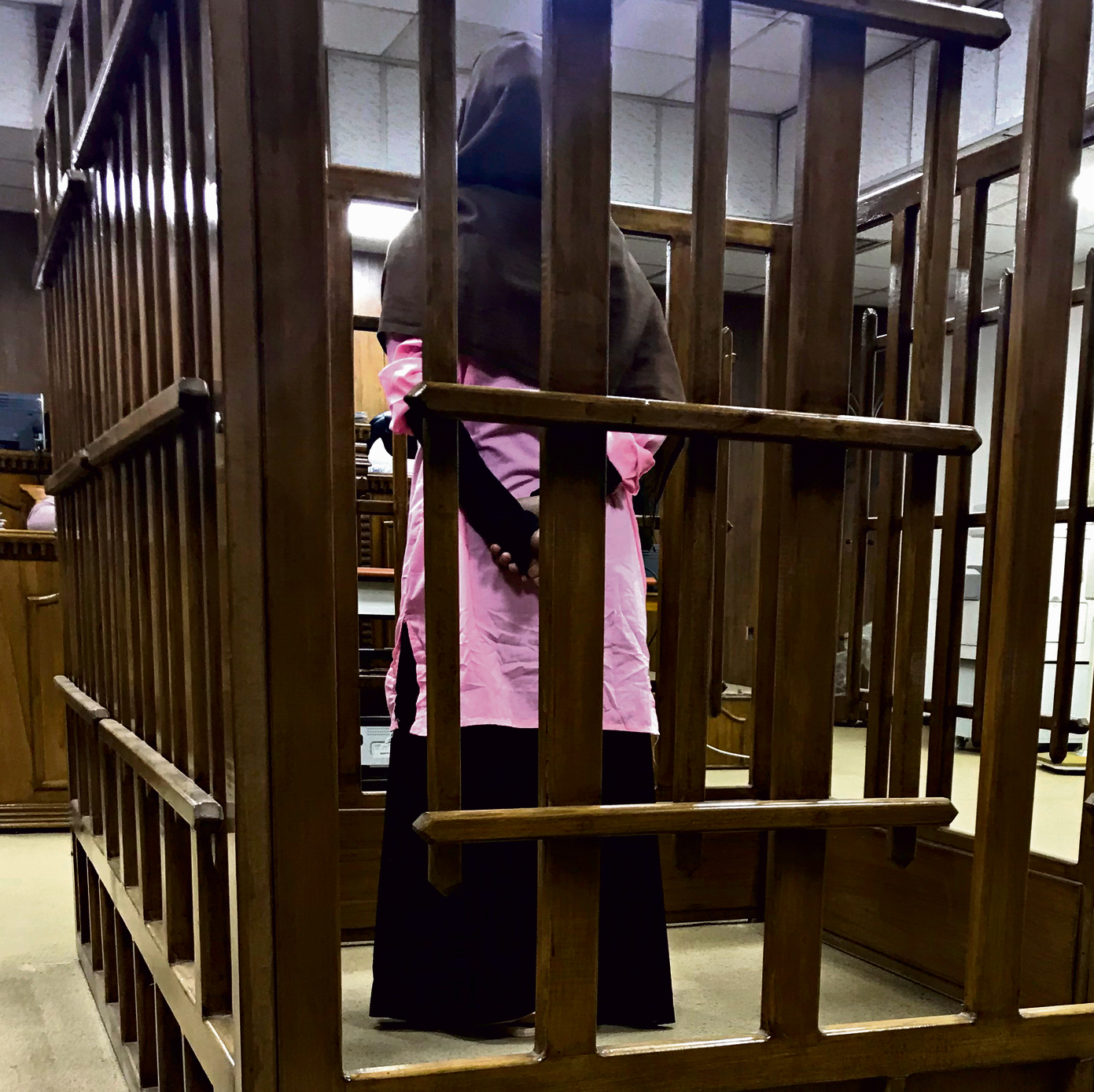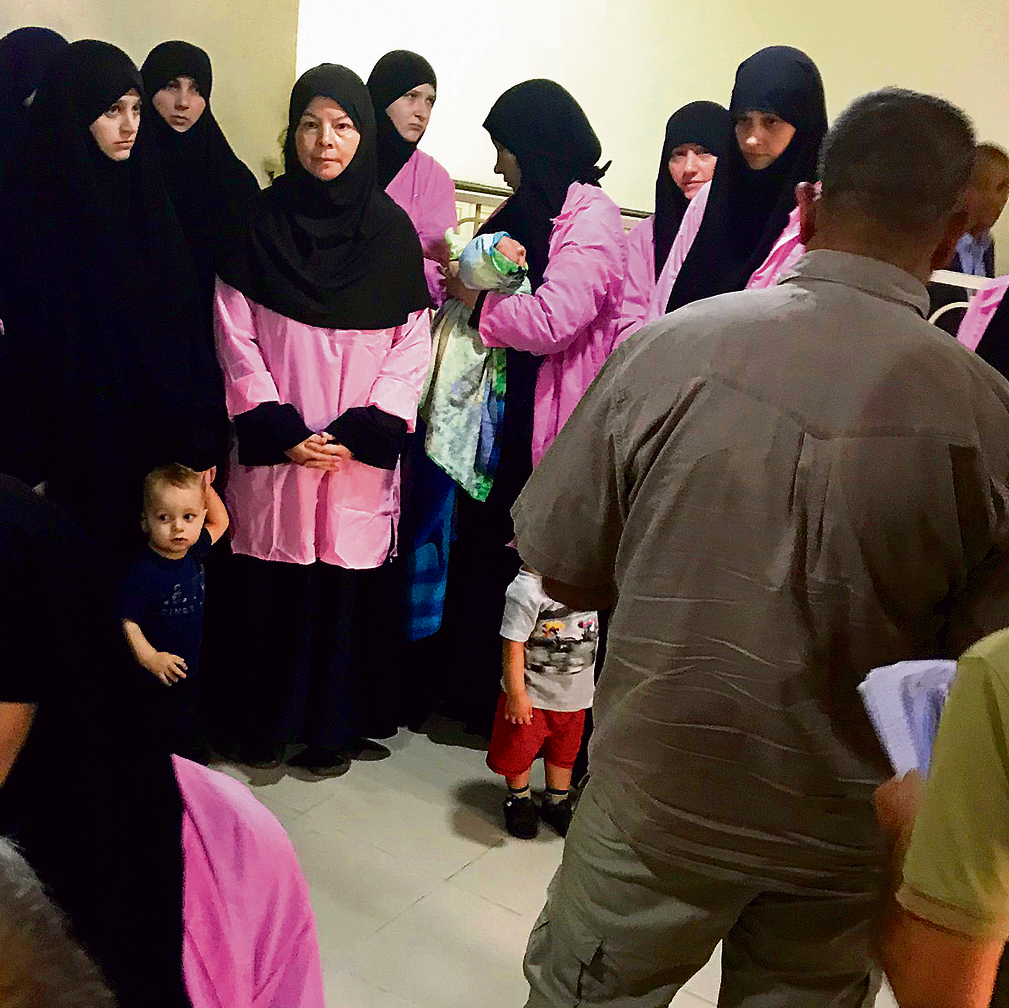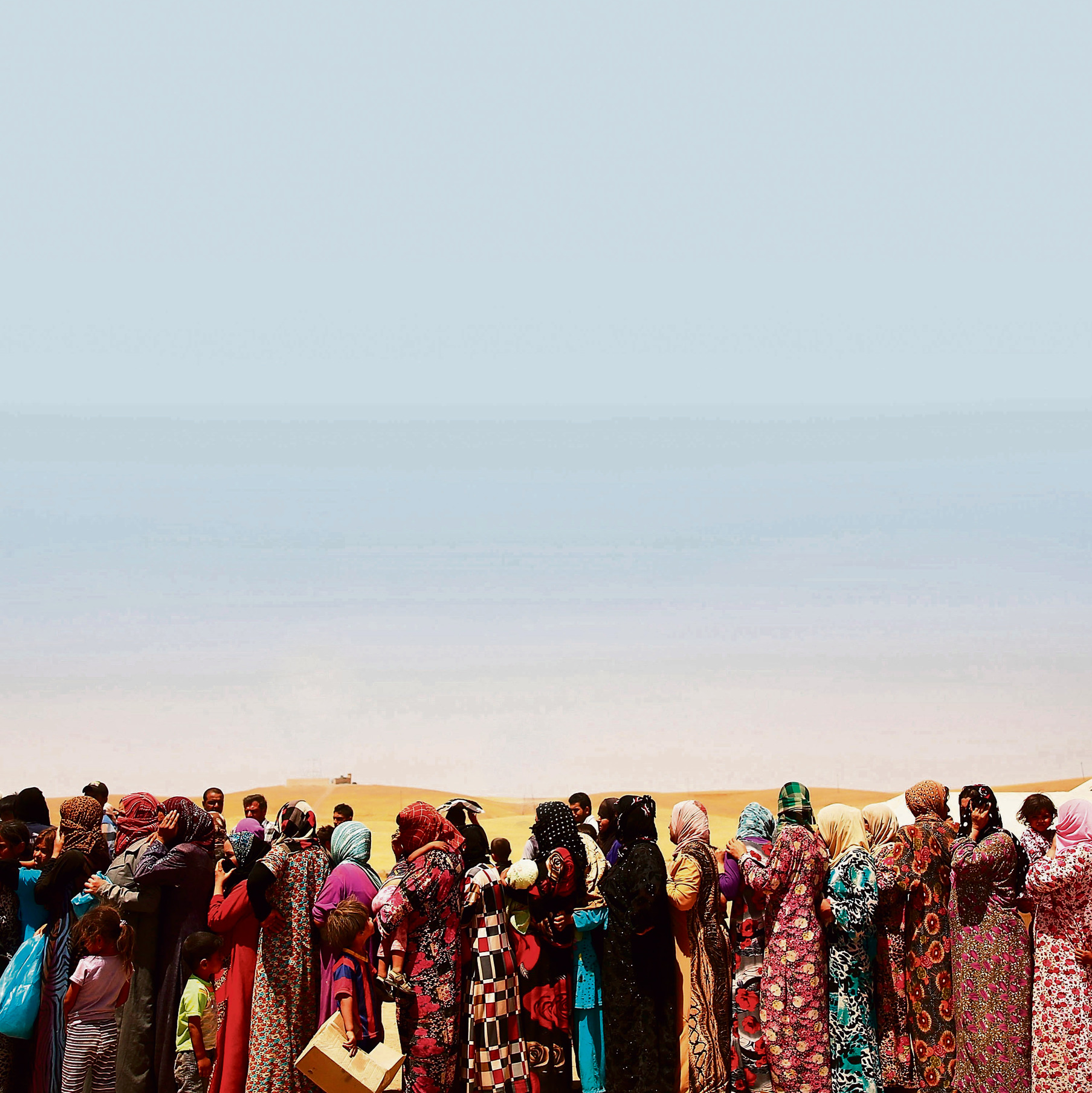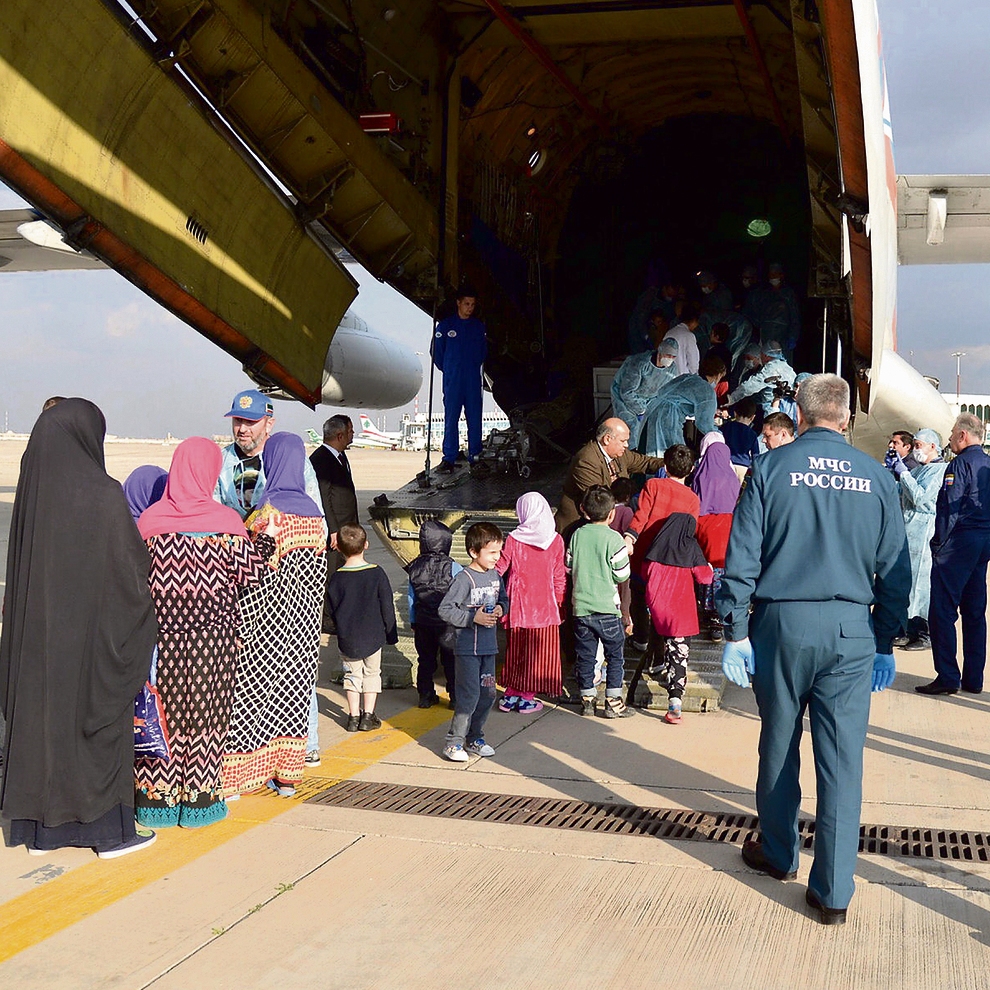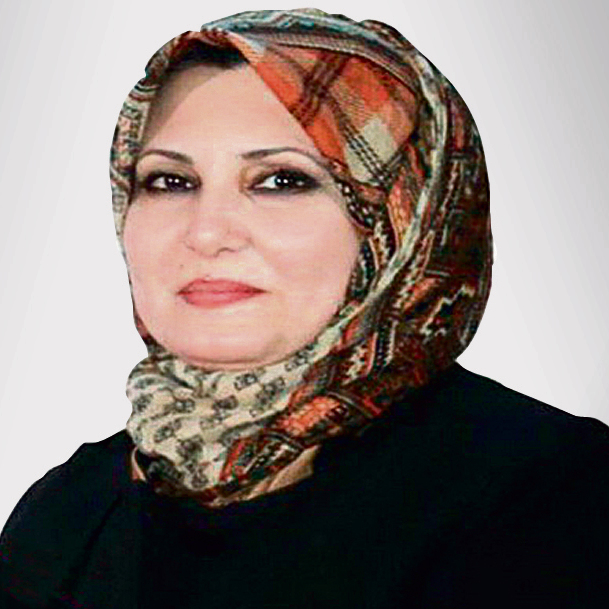
ISIS wives: The lost women of war
They left the West to join their husbands in Syria, only to lose them in battle and then face death by hanging; for the foreign women wed to Islamist jihadists, their countries have abandoned them to a judgment that is quick and often lethal.
The procedure is very simple: the court calls a defendant’s name and gives a few details about her country of origin. Only after looking through documents and discussing other details, does the court address the woman, asking if she pleads guilty.
No indictments are read. There’s no audience, no representatives from the defendant’s country of origin, nor from any human rights organization. Even the defense attorney waits outside, and honestly admits he doesn’t "know the details of this case.”
It’s only the woman, in a cage, three judges and five security guards surrounding her. If she’s lucky she’ll get life in prison. Usually though, the punishment is death by hanging, to be executed immediately.
The circumstances for the so-called ISIS wives has worsened over the past few months, as the organization withdrew from massive swathes of territory. Estimates state that around 4,500 women arrived from abroad to join the terror organization. Today, when the group’s demise seems closer than ever, it appears that everyone wants rid of these women—especially the ones suspected of taking an active part in the fighting.
Turkey, for example, dispatched an investigating team of officers to Iraq , with a clear aim: To bring the ISIS women to trial and “to hand each of them the severest punishment.”
Arif al-Hakimi in Baghdad and Shamar al-Badawi in Syria are each a defense attorneys for hundreds of defendants suspected of belonging to ISIS, but never even bother to meet their clients. Britain, France and the Philippines gave the ISIS women an advance warning: “Don’t summon our representatives to the trials, we have no interest in participating, and will not accept the defendant back (into the country). Russia isays it is “still considering how many of the women will be allowed to return.”
In Britain, there have been calls to revoke the women’s citizenship and ignore the trials, while France has agreed to take in a small number of children, mostly girls, but certainly not the mothers.
Last August, 1,700 women and children were captured in the Tal Afar region of Iraq by Peshmerga military forces from the federal region of Iraqi Kurdistan. The captives were taken to Baghdad and motherless children were sent to orphanages. Boys are only released if a relative claims them and guarantees to take care of them. Kurdish officials have made it clear that they can’t release the women and children, “since they have no documents or travel documents. And another, no less important matter: some of these women, like some of the older boys, till hold an ISIS worldview, as they have not been exposed to any other point of view in recent years.”
No identity, no future
Nûh Suwaidi’s case is typical. She left Koln, Germany, with her husband Mahmoud. Their first stop was Iraq, and they later had to move to Syria “for work purposes.” She’s 24 and has three young children, and now awaits her trial in a crowded room in a detention camp in Syria.
“We decided, as a young couple, to move to Iraq and were then ordered to move to Syria,” she said. “After a difficult life in Germany, having no job and not understanding the language, I was sure I was in for a bright future. We flew to Turkey and someone waited at the border to take us across. He took us to Iraq and housed us in a home in the south, I didn’t even know where I was.”
Suwaidi said that she picked up a rifle out of boredom, as her husband was away for long stretches.
“My husband left two days after we arrived, and joined a group of militants who picked him up with a jeep. I didn’t know where he was going or for how long. He came back after a week for one day, and this repeated itself for a year. I didn’t have children back then so I had nothing to do. I took a target practice course—that’s how they called it. I got permission from my husband and I learned to shoot a rifle.”
Today, she fears a death penalty awaits her. “ISIS posted pictures of me shooting at target practice,” she said without mentioning if she ever shot other, human targets. Anyway, if asked, she’d say no.
“After a year I had my first child, and half way through the second pregnancy my husband said we were leaving… we went to Syria.” The couple and their baby moved between random tents, and when the second baby was born conditions only worsened.
“There was very little food, poor furniture, I had nothing to do but care for the babies,” Suwaidi said. My husband hardly came by, and after one of his visits I was pregnant again. He wasn't very pleased—and I also didn’t know how I’d handle three small babies.”
Then, the worst happened. “The neighbors came and told me that my husband had been killed. I didn’t know what to do with our babies, I started looking for our passports to go back to Germany. But even after I had all the documentation, I still didn’t have the money for a ticket and there was no one to give me a visa. Instead, I was taken to a women’s detention camp in Syria with the children. I don't know how long I’ll survive for my babies.”
The children are at the root of the problem. “These are children who were born and raised in a harsh and cruel environment, with no games, no smiles, surrounded by men who are killers and mother who had to join them. What can we expect from them?” says Dr. Wasal Nassif, a psychologist who runs a therapeutic community for such children in Europe—but won’t disclose its whereabouts.
“We mustn’t forget that these children have no identity and no clear future. It’s unclear what they’ve absorbed from their terrorist fathers. It seems like everyone just wants to get rid of them today,” Nassif says.
In the ISIS camps, there was a clear division: boys go to improved schools with the fighters’ wives, and then went on training camp at ages 10-12. Girls study for four years and then go home to their mothers to learn “how to treat the soldiers upon their return.” “Be nice and obedient,” say the mothers to their daughters, “don’t argue with your fighter husband. Give him a good life since he won’t be with us for long, and you’ll be able to start over.”
Husband hunting in Syria
Nora Camali came to Syria four years ago with two of her friends, “to offer the fighters help.” She was promised she’d be able to marry one of them, according to her choice and of her free will. Despite the veil and loose fitting clothes she wore, Farida “the home’s manageress” spread the rumour that “Nora was a real beauty, modest and well behaved.”
Then, she received dozen of marriage offers. “Each had a picture attached, and I was told to choose. I looked through them and chose one of a beautiful young man who looked nice, and told the manageress I’m ready to meet him. ‘There won’t be a meeting. You said you wanted this,’ she told me and pointed at the picture. ‘You’ll get him and you’ll marry him right away.’"
The husband arrived after three weeks. “He looked nothing like the picture, it was probably cut out of a newspaper,“ Camali said. “He took one look at me, and said we were leaving. What could I have done? We were married in a short ceremony and we moved into a crumbling apartment. I was pregnant after a few weeks, and I had a baby girl who saw her father twice before he was killed.”
Camali appeared in court in a camp in Syria with her little girl. Detainees remain in the camp for up to a year and a half, and await trial and sentencing. “Then,” says a local worker, “they are taken to life in prison or to their execution. The women here don’t feel welcomed, no one takes an interest in them and there is attempts to deny any responsibility for them.”
When Camali was summoned to court, she quickly gave her daughter to an inmate who was waiting outside. She walked in, bowed her head and said: “I had no idea what was waiting for me in Syria.” Then she heard her sentence — life in prison, without her child. “Your relatives agreed to take the girl," one of the jduges told her. “We’ll sent her to them in Britain, soon.”
Camali burst into tears and said she wasn’t guilty, but the court instructed officials “to remove the defendant and bring in the next woman.”
And so, hundrends of children—mostly girls—are left alone in the world after their parents are either killed or imprisoned. If they’re lucky, relatives will agree to raise them. Germany, France and Sweden now agree to “seriously examine these children’s education, in the right educational establishments,” but other countries, mostly Arab Muslim ones, ignore the delicate situation. Their representatives avoid contacting Iraqi authorities. In Syria, children up to 14 or 15 are held in orphanages, and their fate afterwards is unclear.
'I thought life would be better'
Um Mohammed, 32, said she also thought she was on her way to a better life when she moved her family from the Netherlands to Syria, to live under ISIS rule. “I was sure everything would be much better, that we'd have mutual understanding, that life would be more convenient and that I would run my life in a manner that suits me best.”
She won’t reveal her real name, for fear that acquaintances in the Netherlands would harm her parents or her sister. She’s in a camp in northern Syria with thousands of women like her, and claims she regrets everything. She asks to be taken back to the Netherlands with her children, back to her family. “They can put me in prison in Amsterdam, I don’t care, I just want to be out of Syria and certain that my children and I are safe.” Her husband, Nimer, disappeared a year ago. She has no passport and her three children are not registered anywhere.
She was caught by the Kurdish forces in August, who now hold 500 men and 350 women, as well as 1,200 children who were born in ISIS territory in Syria. Only several countries have agreed to accept the women, and mostly the children, including Russia, Indonesia and Chad. A Syrian judicial spokesmen issued a statement calling on 44 countries around the world to accept the women and children. He said he mostly received messages saying “it's better if you execute the women, and we’ll see about the children.”
“Just like they fought ISIS,” says Abed Al Kraim Omar, a Kurdish foreign affairs representatives in the Iraqi government, “it’s now time to take care of the women and the children. Not all of them are guilty, but only a few got permission to return to their country of origin.”
“We tried to operate safe houses in Syria,” says Sausan Alush, who works at a state-approved human rights organization in Syria. “We’re trying to understand which of them still holds ISIS views—and there are plenty. We have to remove them. But older, more radical women protested and forced the young and ‘rebellious’ women to wear burkas and beat them.”
“We used music to examine (who thinks what),” says Alush. “I played a famous pop song called Nour El Ain, by Egyptian singer Amr Diab. It means ‘the light in your eyes.’ We played it around the camp and there were mixed responses. Some women said that ISIS forbids music, and that they’ll cover their ears and their children’s ears.”
Alush describes a creative way she chose to address the issue. “After a week or two we played it again, and the camp fell silent. Almost all the women started to dance and there was a different, nicer vibe. But then, the wife of Amir, a high-ranking ISIS official came and told them off. They all put their headscarves back on, stopped dancing and humming and said there would be ‘no more music.’"
Fatma Nur Al-Din, 32, is the exception in this group. She’s a doctor, and also came here from the Netherlands: “I only came to Syria to convince my husband to return home, but he refused and I got stuck here with our three children. I brought them all with me to remind him what he has to lose at home, but our passports were taken away from us and we couldn't leave. My husband finally agreed for me to leave but only with my two daughters—my son was supposed to be left behind and become an ISIS fighter.”
“Of course I didn’t agree,” Al-Din says. “Finally, at some point, I was able to run away with the children, but we lost my husband. I don’t know where he is or if he’s still alive. I hope we get released from this camp and can return to the Netherlands. I understand that I’ll have to go to prison there, but I don’t care. As long as my children get treatment and forget the horror we are going through here in Syria.”
Rania is a young woman from Canada. “My husband, Malik, whom I met online, tricked me. I was sure we were heading to Lebanon, I was hoping we’ll find a spacious house in Beirut or nearby and live a good life. But my husband didn’t share his real plans with me. Only after we landed in Istanbul did I learn we were going to Syria. We crossed the border and continued on with a local car, I didn’t know where I was going. A woman housed me in a small apartment and my husband disappeared two days later. I volunteered as a teacher and taught the woman’s children, until I gave birth to my first son. Then I had another son.”
“At first it was difficult, but I got used to it,” Rania says. “Some women were nice, others were less so. I was happy I had a job and devoted myself to bringing up the children. My husband came every two weeks for a short break. Two years ago I was informed he had been killed, and immediately a man came to offer marriage and to become his third wife.”
Four months ago, Rania was sent to a small detention camp with her children. The Canadian authorities ignore her, as does her family. No one wants her or her children—Farid, 14, and Faruk, 16. The court will soon decide if she is to be sentenced to death by hanging or serve life in prison.
Despite US President Donald Trump’s declaration, most experts agree that there are still ISIS cells in the northern Syrian countryside. The fate of the organizations' leader, Abu Bakr al-Baghdadi, is unclear. He was last seen in 2014. Every now and then the Americans declare he’s dead; his voice has been heard in several speeches since—but it’s unclear whether it’s really him.
“As long as we don’t have a formal announcement of al-Baghdadi’s death,” saysan Israeli security official, “we can assume he’s alive and traveling under a false name with a small group of supporters—like Saddam Hussein did until he was caught by the US.”
Meanwhile, ISIS continues to manipulate the media. “All of a sudden, they want to highlights the women’s role,” says Dr. Maher Muhammed, from an Arab research institute. “Women are offered fighting roles, but mostly recruitment positions in Europe and working as agents there. There are still ISIS women who are ready to go on, but the numbers are dwindling. Some escaped and some were caught. Either way—forces are closing in on them.”
Iraqi Education Minister Shaimaa al-Hayali became a different kind of ISIS victim. She was the only woman in Iraq’s new government, but it lasted only four days. Soon after she was sworn in, a well-known and respected Iraqi politician posted that her brother, Laith al-Hayali, was an ISIS official. He was seen waving an assault rifle in an ISIS video, and calling for the murder of Americans and Iraqi security forces.
Then, it was revealed that two of the new minister’s cousins and another brother were killed in an American attack. Her two nephews, Laith’s sons, were also killed while trying to place explosives targeting Iraqi security forces. Her brother escaped to Turkey with his youngest son, and is still unaccounted for.
In her resignation letter, al-Hayali wrote that “ISIS forces all of us to work for them,” and that they threatened anyone who objected. “My brother was forced into ISIS,” she said and explained she was a respectable academic who was innocent due to the circumstances. But five other members of her family think otherwise, and voluntarily joined ISIS. “I had nothing to do with terror or crimes against the government,” she said, in vain.
Other ISIS victims, perhaps the more obvious kind, are young and modern women that the organization despises. Tara Fares, an Iraqi beauty queen who wore revealing clothes, was on ISIS’ hit list for a long time, until she was finally killed in a drive-by shooting last September. The same thing happened to a humans rights activist, a doctor, a beauty salon owner. Iraqi forces went out to avenge these women’s deaths, and while battling ISIS they arrested dozens of the fighters’ wives—who are now awaiting their 10 minutes with the court in a south Baghdad prison.
Brides of Jihad, women of terror
At its height, in 2014-2016, ISIS drew Islamist extremists from around the world. According to the International Centre for the Study of Radicalisation and Political Violence at King's College London, more than 10 percent of the foreign volunteers were women—some 4,500 in total. ISIS had purely female terror squads, single women who went out on missions, and whole families that operated as terror cells.
Some of the women that came from the West were “Jihad brides” and operated as sex slaves for the fighting forces who often had more than one such woman. Some had propaganda positions and called other women to join the cause. According to a report by the European Union, 96 women were arrested on terror charges in 2014, 171 were detained in 2015, 180 in 2016 and 123 in 2017.
A similar process happens in the Palestinian terror group Hamas. During the 1993-1996 terror wave, Hamas purposely avoided recruiting women as suicide bombers. Sheikh Ahmed Yassin even confirmed this when asked. But during the second terror wave at the turn of the millennium, women’s numbers increased significantly.
In the evolution of modern terror, ISIS was fashionable, as was al-Qaeda a decade before. Actually, the two constituted of some of the same Salafi extremists. These forces are unlikely to disappear, but rather change form—to a decentralized organization, or perhaps an organization with a new center in chaotic countries like Libya, Mali, Central Africa, Afghanistan or Sinai. Time will tell, what it evolves into next, but there will always be women dragged along.
Professor Boaz Ganor is the dean of the Lauder School of Government and Diplomacy at the Interdisciplinary Center.










